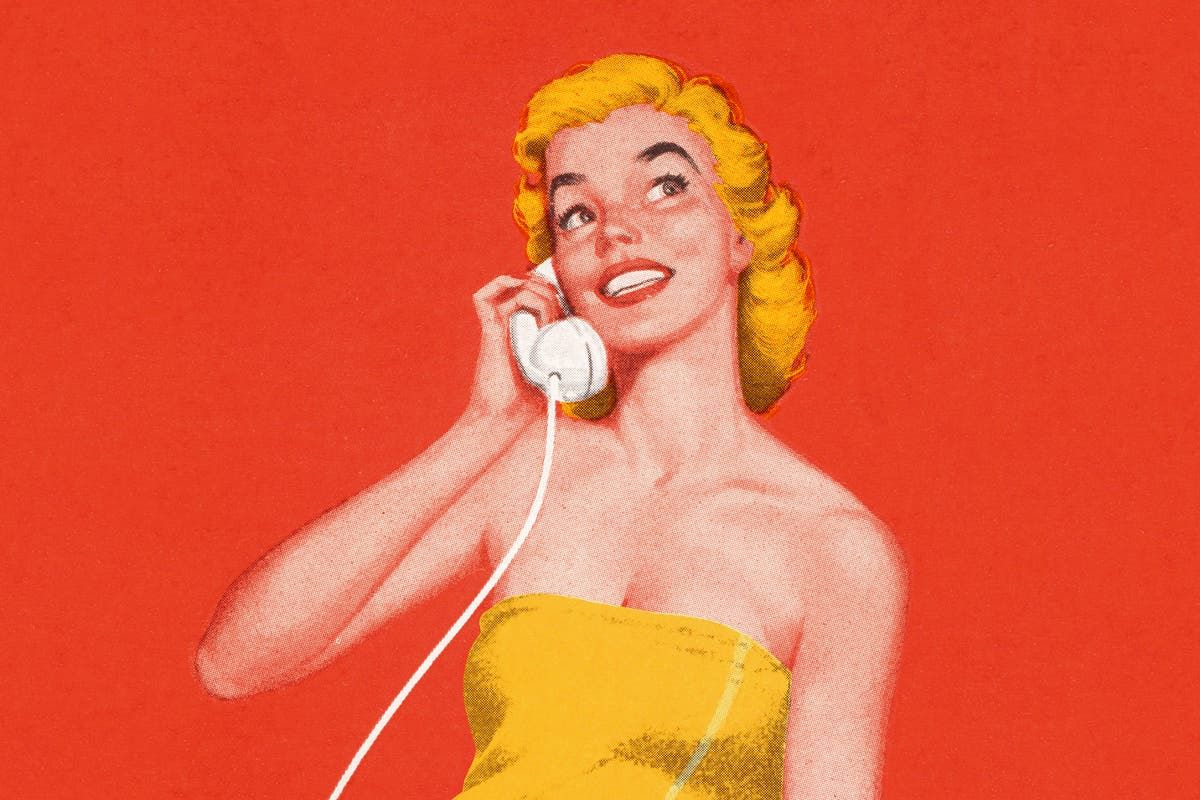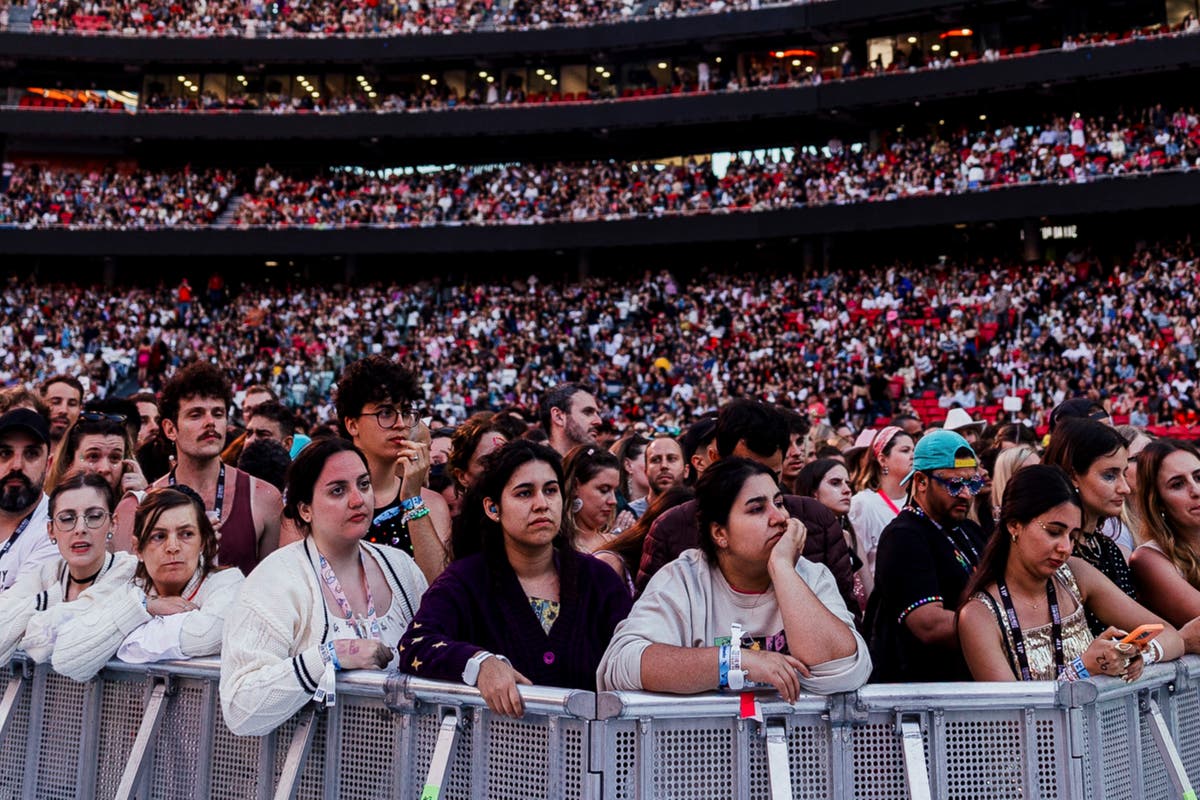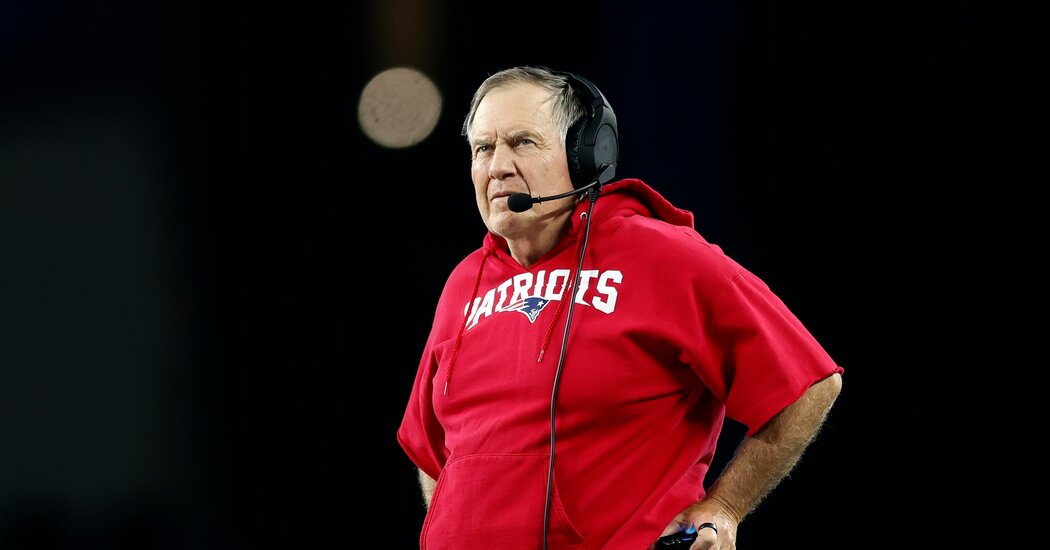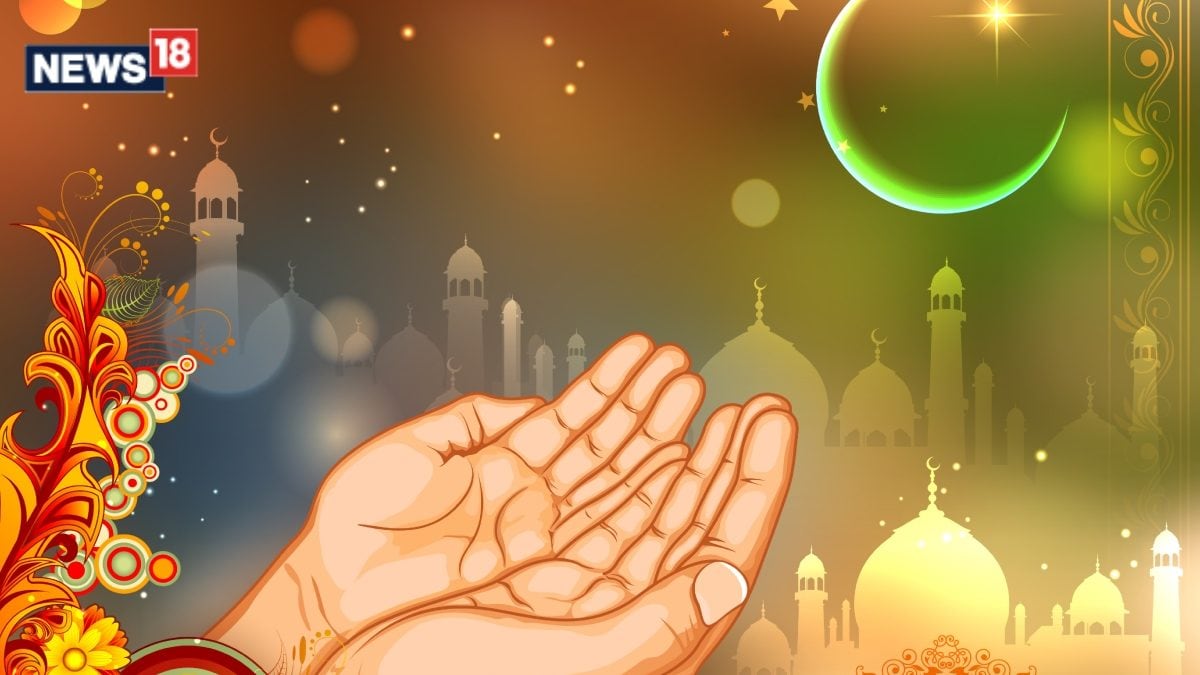myEvery time Mangala Holland breaks up with someone, she promises to stop having sex for a while. “It usually lasts a few months,” says the 51-year-old author. easy orgasms tells me. “It's a way to come back to myself and get over the emotional pain and re-evaluate what hadn't worked in the last relationship. “It also allows me to become more emotionally mature, detect unhealthy attachment patterns, and do inner work without projecting my ‘stuff’ onto another person.”
If that all sounds very healthy and reasonable, that's probably because, well, it is. While there was a time when taking a vow of abstinence would have elicited laughter and critical whispers, today many see it as an integral part of self-care and personal development, something many of us could benefit from. Hence the uproar surrounding a new Bumble advertising campaign, which saw billboards placed across the United States with the slogan: “You know damn well that a vow of celibacy is not the answer.”
Users furiously criticized the ad, which showed a photograph of a woman. “Run an ad campaign that tells men how to write better bios, take better photos, how to keep a conversation going and string together a basic sentence and not randomly mention sex in the middle of a normal conversation,” one person commented on Instagram. “Then men will have more success with your app. “This is not a problem that women should solve.”
Another tweeted: “Surprised by the Bumble ad saying 'a vow of celibacy is not the answer.' In a world fighting for respect and autonomy over our bodies, it is appalling to see how a dating platform undermines women's decisions. Wasn't this app supposed to empower women to date on their own terms? Even Julia Fox weighed in through the comments of a TikTok carousel showing images from the new campaign, writing, “2.5 years of celibacy and I've never been better.”
The dating app, which recently dropped its feminist USP that saw women making the first move in heterosexual couples, has since apologized. “We made a mistake,” Bumble's statement reads. “Our ads referencing celibacy were an attempt to lean into a community frustrated by modern dating, and instead of bringing joy and humor, we inadvertently did the opposite.”
Offensive or not, perhaps the real problem is that the ad highlighted how out of touch this view of sexual abstinence is. Because, as Fox pointed out, celibacy can be transformative for many people. Traditionally, of course, it is a fundamental religious practice for those who are not married in some denominations, such as the Roman Catholic Church. And, although many feel it is now an outdated idea, it has slowly begun to gain traction online: There are more than 78 million posts on TikTok with the “celibate” tag, for example.
The topic also dominates conversations elsewhere. Consider Sofie Hagen, the author and comedian whose book, Will I ever have sex again? details what the 35-year-old has learned about herself after not having sex for more than eight years and the complexities of female sexual liberation. “My nearly nine-year period of celibacy was by choice and not by choice,” Hagen tells me. “The choice was made by my body and my mind; If a sexy opportunity presented itself, I would shut down and go into panic mode. It was incredibly helpful; Whereas, in the past, I would have just pushed my body away saying 'no' to sex and tried to do it anyway, now I physically couldn't.”
Hagen adds, “It was a very strong signal from my body that if I don't start setting boundaries with people, sex won't be fun or safe. Going without sex for almost a decade means that when I do have sex again (or if I ever do again), it will be with a completely new mindset. A healthier and safer mentality.”
The irony is that abstaining from sex may ultimately be the best thing you can do for your sex life, says Holland, who runs programs on female pleasure, especially if you've accumulated a series of disappointing sexual experiences or have suffered some kind of abuse. sexual trauma. “Many of my clients have expressed that they feel numb, frozen, or dull after any type of grief or trauma, and it's important to have the space to work through this,” she says. “It's very tempting to jump right into an app to distract yourself, but if you take the time to do the emotional work to fully heal, you'll probably choose a healthier partner next time.”
By eliminating the physical act of sex from your life, you are creating space for other important, and possibly more emotional, lessons that enhance your sense of self and give you a greater understanding of what you are really looking for from sex. , says counselor Barbara Santini. “It allows people to redirect their attention inward, allowing for introspection and the cultivation of a deeper understanding of themselves,” she adds. “This period of solitude provides the opportunity to explore one's values, desires, and emotional landscape, ultimately fostering greater self-awareness and confidence.”
This was certainly the case for Star, 48, who initially decided to remain celibate for a year after a period of poor mental health. “The benefits have been countless,” she says. “I've formed new female friendships, found new hobbies, and made up for all those lost hours I spent stressing about my partners and all that extra mental work.” Given how much she gained from the process, Star ended up staying celibate for much longer than planned. “In August it will be three years,” she says. “I have no shortage of men interested in me, but I'm just not interested in them. I'm not ruling out getting into a relationship in the future, but I've spent these last few years designing a life that I really love, so there's a lot to compete with. If someone comes along who is a good fit, then that's great, but I'm not going to compromise my peace, my sanity and my health just to be in a relationship that I don't need or want.”
But being celibate doesn't have to mean being single; You can still date while abstaining from sex and get similar benefits. “Many times people are blinded by the initial feelings of attraction towards someone and become hooked on the neurochemicals that are released during sexual relations, which many tend to confuse with love; this can lead to unhealthy relationships if it is with an inappropriate partner “. ” says Dr. Limor Gottlieb, relationship psychologist. “When people abstain from sex and go on dates to really get to know people, they may agree to have sex once emotional intimacy and trust has been built. “It will allow for better judgments and less distress in the future.”
Intention is essential to discern when the choice of celibacy is constructive or not.
Stephanie Manes, therapist
Perhaps the only problem with abstaining from sex is identifying when it's time to start having it again. By being celibate for a long period of time, you could end up creating more problems in the future: becoming so comfortable being alone that you put off having sex ever again, or creating an unhelpful mysticism around it that hinders your ability to form yourself. meaningful connections with new people.
“Intention is critical to discerning when the choice of celibacy is constructive or not,” says therapist Stephanie Manes. “We have to be careful about the ways in which celibacy can be an avoidance of self, versus a path toward self-knowledge; “There is a danger of choosing celibacy simply as a reaction to hurts and disappointments.” In other words, if you're going to practice celibacy, make sure that decision doesn't come from a place of fear. It has to be a conscious choice that feels positive.
If it's the latter, chances are you won't regret it. And, despite what the now-defunct Bumble ad may say, it could be particularly beneficial for women, who are more susceptible to dominant social and cultural narratives that constantly tell us what we should and shouldn't do with our bodies.
“Celibacy restores women's choice,” says Manes. “Saying no to sex for the period of their choosing allows them to regain control. They can separate the wheat from the chaff and get in touch with what it feels like to say a true “yes” versus a thoughtful, obligatory nod. It can be a lesson in how to choose yourself.”












